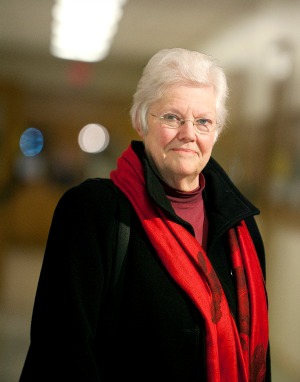Speakers
Tuesday, October 18
Title:
Presenter, Women as Perpetrators panel
Who:
Beth Griech-Polelle, The Kurt Mayer Chair in Holocaust Studies, PLU
Bio:
Beth A. Griech-Polelle, the Kurt Mayer Chair of Holocaust Studies, earned her bachelor’s degree at Chestnut Hill College, Philadelphia, Pennsylvania and her M.A. and Ph.D. at Rutgers, the State University of New Jersey. Her doctoral advisor was Professor Omer Bartov. She is the author of Bishop von Galen: German Catholicism and National Socialism (Yale University Press, 2002).
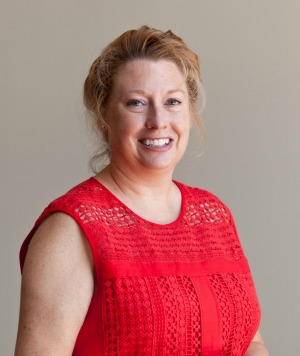
She is the co-editor with Dr. Christina Guenther of the book, Trajectories of Memory: Intergenerational Representations of the Holocaust in History and the Arts (Cambridge Scholars Press, 2008) and she is the editor of The Nuremberg Trials and Their Policy Consequences Today (NOMOS Verlag, Baden-Baden, Germany, 2008). In addition, she is the author of many chapters in books and numerous book reviews. She is currently under contract with Bloomsbury Academic Press, London, UK to write a textbook on antisemitism and the Holocaust.
She has presented papers at conferences all over the world, including at Yad Vashem, Jerusalem, Israel, the Belgian Academy of Rome, Rome, Italy, and The German Historical Institute in London, UK. She has participated in scholars’ workshops and seminars at the United States Holocaust Memorial Museum and has given lectures in various venues including the Toronto Holocaust Education Week and at many synagogues. She is dedicated to educating the general public and has given lectures at historical societies, local high schools and junior highs, and at professional days for public school teachers. In addition to her public speaking, Dr. Griech-Polelle is an editor of the online journal, Contemporary Church History Quarterly and she is currently serving as guest editor of the Journal of Jesuit Studies special edition on Jesuits and communism.
Title:
Presenter, Women as Perpetrators panel
Who:
Daniel Patrick Brown, Professor Emeritus, Moorpark College (CA)
Bio:
Daniel Patrick Brown is a professor emeritus from Moorpark College (CA). He has authored numerous historical works, including The Beautiful Beast: The Life & Crimes of SS-Aufseherin Irma Grese (2004) and The Camp Women: The Female Auxiliaries Who Assisted the SS in Running the Nazi Concentration Camp System (2002). He now resides in Bloomington, Indiana.
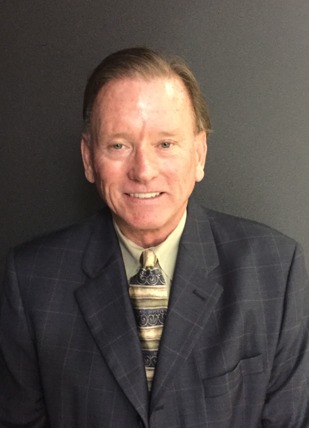
Title:
Presenter, Women as Perpetrators panel, “Women at Work: The SS Aufseherinnen and the Gendered Perpetration of the Holocaust”
Who:
Shelly M. Cline, Ph.D. Historian – Midwest Center for Holocaust Education
Bio:
Shelly M. Cline is the Historian at the Midwest Center for Holocaust Education in Overland Park KS. She received her Ph.D. from the University of Kansas. Her research focuses on the SS Aufseherinnen in the concentration camp system and the gendered perpetration of the Holocaust. Her research has been supported by grants from the University of Kansas and the Universität Hamburg. She has presented and national and international conferences. Cline has been an instructor in KU’s Humanities Program and their Women, Gender, and Sexuality Studies Department, and has also served on the faculties of the Kansas City Art Institute and the University of Missouri Kansas City.
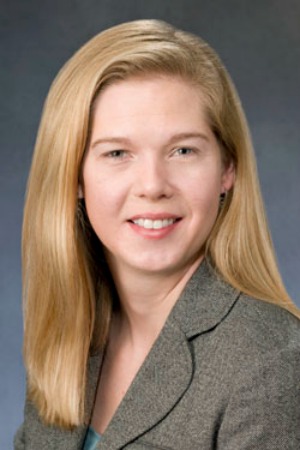
At these institutions she has developed and taught courses on Gendering the Holocaust, Nazi Germany, Antisemitism, and Modern Europe. She is currently revising her dissertation for publication.
Title: Respondent, Women as Perpetrators panel
Who: Dr. Pauline Shanks Kaurin, Associate Professor of Philosophy, Holocaust and Genocide Studies faculty, PLU
Bio:
Dr. Pauline Shanks Kaurin holds a Ph.D. in Philosophy from Temple University, Philadelphia and is a specialist in military ethics, just war theory, philosophy of law and applied ethics. She is Associate Professor and Chair of Philosophy at Pacific Lutheran University in Tacoma, WA and teaches courses in military ethics, warfare, business ethics, social and political philosophy and history of philosophy. Recent publications include: When Less is not More: Expanding the Combatant/Non-Combatant Distinction; With Fear and Trembling: A Qualified Defense of Non-Lethal Weapons and Achilles Goes Asymmetrical: The Warrior, Military Ethics and Contemporary Warfare (Ashgate 2014)
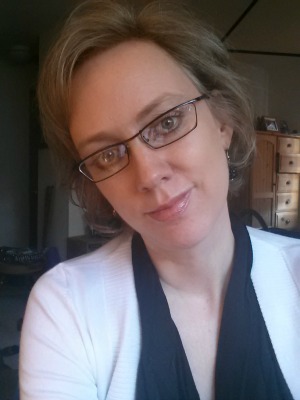
Title:
Introduction, Mayer Summer Research Fellow presentation
Who:
Rona Kaufman, Associate Professor of English, PLU
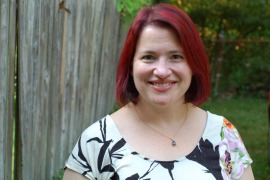
Bio:
Rona Kaufman is associate professor of English at Pacific Lutheran University, where she teaches writing, memoir, and the English language. Her article “Testifying, Silencing, Monumentalizing, Swallowing: Coming to Terms with In Memory’s Kitchen” was published in JAC (Journal of Advanced Composition), and she delivered a version of that paper for the 2013 Powell-Heller Conference for Holocaust Education. She is the co-editor of Placing the Academic: Essays on Landscape, Work, and Academic Identity. She is one of the founding members of PLU’s Holocaust and Genocide Studies Program.
Title:
Mayer Summer Research Fellow presentation
Who:
Carli Snyder ’17, Pacific Lutheran University
Bio:
Carli is a senior at PLU with a double major in History and Women’s and Gender Studies and a minor in Holocaust and Genocide Studies. She received the Kurt Mayer Summer Research Fellowship in 2015 and 2016. Last semester, she studied abroad in Amsterdam, the Netherlands. Carli is the PLU history tutor, a global ambassador at the Wang Center for Global and Community Engaged Education, and a tour guide. She also swims on the three-time conference winning team at PLU.
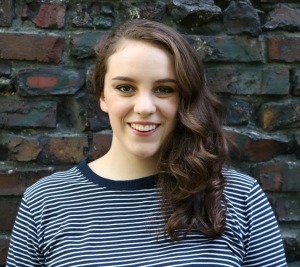
Title:
Mayer Summer Research Fellow presentation
Who:
Kate Wiley, Junior, History Major, Pacific Lutheran University
Bio:
My research focused on the Romani people, who are more commonly referred to by the pejorative label, ‘the Gypsies’. I chose to study the Romani people after I found out that they continue to be denied their basic human rights in multiple countries; I find this greatly upsetting. In my research I observed a pattern of persecution throughout most of their history, in which certain stereotypes and myths, such as the supposed predisposition to thievery and ‘wandering’, are recycled by the oppressors to justify the mistreatment of Romanies. The illegitimacy of the myths and stereotypes became apparent as I further studied the complexity and diversity within the Romani population. Unfortunately, the validity of these stigmatic ‘Gypsy’ characteristics often go unquestioned. So in my paper, I argue that the unique and distinctive identities of the Romani people must be recognized in order to confront and dispel these malignant stereotypes and myths because until they are challenged, the oppressors both in the present and future, can continue to deprive the Romani people of their human rights and dignity.
Title:
Mayer Summer Research Fellow presentation
Who:
Sophia Mahr ’18, Pacific Lutheran University
Bio:
Sophia Mahr is a junior at PLU majoring in Global Studies with concentrations in Development and Social Justice & International Affairs. Sophia is also pursuing minors in Holocaust and Genocide Studies & French. She received the Kurt Mayer Summer Research Fellowship to research and analyze human medical experiments and research. Sophia studied away in Berlin, Germany in 2015 where she had the opportunity to meet and travel with Kurt Mayer’s wife, daughter, and grandson to visit places from his childhood. Sophia also studied away for 6 months at the University of Oxford, England to pursue Refugee and Forced Migration Studies. At PLU, Sophia is the Global Studies student worker, an Admission Ambassador intern and tour guide, and a Gonyea Fellow.
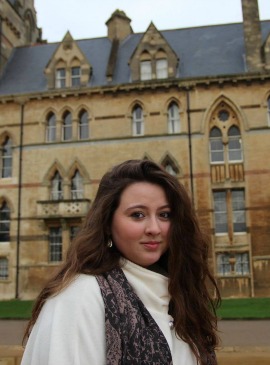
Title: Introduction, Sexual Violence against Jewish Women panel
Who: Jennifer Smith, Director of Center for Gender Equity and Affiliate Faculty Member in Women’s and Gender Studies, PLU
Bio:
Jennifer Smith, Ph.D. currently serves as the Director of PLU’s Center for Gender Equity. She is also an Affiliate Faculty member in the Women’s and and Gender Studies Program. Her areas of expertise include transgender studies, feminist and queer theory, gender-based violence, and modern British literature.
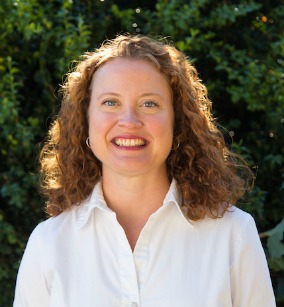
Title:
Presenter, Sexual Violence against Jewish Women panel, “Struggling Against Disbelief: Sexual Violence Against Jewish Women During the Holocaust”
Who:
Sonja M. Hedgepeth, Affiliation: Remember the Women Institute & Middle Tennessee State University
Bio:
Dr. Sonja M. Hedgepeth is on the Executive Board of the Remember the Women Institute, a 501(c)(3) not-for-profit corporation founded in 1997 and based in New York City. The Institute conducts and encourages research and cultural activities that contribute to including women in history. Special emphasis is on women in the context of the Holocaust and its aftermath, with sexual violence as one focus.
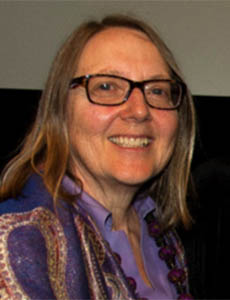
Dr. Hedgepeth is a full professor in the Department of Foreign Languages and Literatures at Middle Tennessee State University. In addition to German, she has taught extensively about the Holocaust, women’s issues, and world literature. Together with Dr. Rochelle G. Saidel, founder and executive director of the Remember the Women Institute, Dr. Hedgepeth co-edited the groundbreaking anthology Sexual Violence Against Women During the Holocaust (Brandeis University, 2010).
Title:
Introduction, Survivor Testimony panel
Who:
Ilana Cone Kennedy, Director of Education at the Holocaust Center for Humanity in Seattle
Bio:
Ilana Cone Kennedy is the Director of Education at the Holocaust Center for Humanity in Seattle. For the past 13 years Ilana has worked with teachers throughout the region to provide and develop teacher trainings, community programs, exhibits, and classroom resources. Ilana received her B.A. from the University of British Columbia and M.A. at the University of Connecticut.
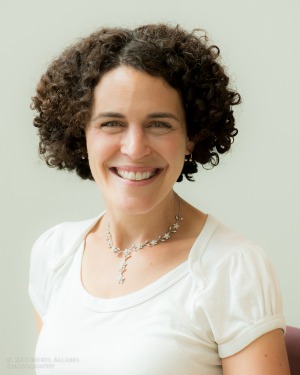
Ilana is a recipient of the Pamela Waechter award for Jewish Communal Service, an Alfred Lerner Fellow from the Jewish Foundation for the Righteous, a Jackson Leadership Fellow, and has participated in numerous Holocaust education programs nationally and internationally. Ilana has helped to plan and lead several international Holocaust study trips and in 2016 will be leading a trip to Vienna and Prague. Ilana lives in West Seattle and is the proud mom of two kids, ages 8 and 9.
Title:
Speaker, Survivor Testimony panel
Who:
Mrs. Agi D., born in Yugoslavia, hidden in Hungary as a child.
Bio:
Agi was born in Belgrade, Yugoslavia (now Serbia) in 1940.
When Agi was still very young, German soldiers took over her family’s apartment. Agi’s mother convinced the Nazis to let them stay, but the family of four was confined to the maid’s room and had to cook and clean for the soldiers.
Agi’s mother tried on numerous occasions to find someone who would help them escape from Belgrade. After a failed attempt, the family was finally able to leave on foot, walking many miles north toward Hungary. Agi’s mother carried her in case of bombings, willing to sacrifice her own life for her daughter’s. At one point, the family found a village of mostly Jews and stayed there for a couple nights. Although encouraged to stay, Agi’s mother insisted they push on. As it turned out, those who stayed in the village were murdered.
The family ended up in Budapest, where Agi’s maternal grandmother lived, since Jews were protected by the Prime Minister of Hungary until 1944. Agi’s father was Serbian, however, and Serbians were not welcome in Hungary. Thus, her mother pretended that he was her boyfriend instead of her husband. Unfortunately, a neighbor informed the Gestapo and Agi’s parents were called in for questioning. After a tense confrontation, Agi’s parents were advised to escape. They decided that Agi’s father would leave Budapest. One of Agi’s first memories is, at the age of two, her tearful parting from her father when he left to hide in the countryside.
In 1944, when the Nazi presence in Hungary became much more dangerous, Agi, her mother, and her sister went into hiding. After staying in a hospital for a couple days, her mother found a priest by the name of Kalman. She convinced him to take them into his convent, though it was already full from hiding other Jewish women. Agi first stayed in the children’s ward, before moving in with her family in the priest’s apartment. During the six weeks that Agi’s family hid in Kalman’s apartment, they had to take refuge in the bathroom for safety during air raids, since in the cellar they could be found out.
That same year, at four years old, Agi was placed with a family from the parish. She pretended to be a cousin visiting from out of town. After briefly reuniting with her mother, Agi was placed with a different family without children, where she was lonely and discouraged from speaking to neighbors.
May 8, 1945, the day that the war ended, was a day of happiness for Agi at the thought of being reunited with her mother. Candy, chocolates, and gum were dropped to her and other children from American planes overhead. For many Hungarians, however, including the family that Agi had stayed with, this day was an unhappy one. Liberation by the Russian Army meant that Communism was coming to Hungary.
After the war ended, Agi’s mother sent her and her sister to their father in the countryside, where food was more plentiful. Agi nearly drowned on the way, but they both arrived safely. Agi remembers spending time in the countryside with kind Russian soldiers who would sing and give out candies.
Due to the growing presence of Communism, Agi’s mother decided in 1946 that it was time to leave Hungary. The whole family escaped to Austria via an all-night, life-or-death boat ride, where discovery meant death.
The family lived in several Displaced Persons camps in Bad Gastein and St. Gilgen, Austria. One of these camps gave Agi and her friends their first glimpses into the atrocities of the Nazis, when they snuck in to an adults-only film that included horrific images from some of the concentration and death camps.
In 1949, Agi’s mother left for Canada to be an indentured housekeeper for a Jewish family – this was her only way out. Meanwhile, Agi lived went to live with her father in Vienna (at this time her parents were divorced).
After two years of working and saving money, Agi’s mother was finally able to send for Agi to join her, as had been the plan all along. The legal immigration process took over five months.
Agi stayed in several different orphanages until she reached Bremerhaven, Germany, where she stayed in barracks until she could board the ship bound for Canada. At the age of 10, Agi was traveling alone. A woman aboard the ship was supposed to look after her, but the woman was not very interested in helping Agi. The boat ride lasted for nine days, but Agi’s journey was only finished after three more days of traveling by train to Toronto, where she reunited with her mother after being apart for two years.
Today Agi speaks to audiences about her experiences as a member of the Holocaust Center’s Speakers Bureau.
(Biography provided by the Holocaust Center for Humanity)
Title:
Presenter, Women as Rescuers and Collaborators panel, “Antisemitism as such did not exist” Jewish and Catholic Girls in Private Convent Schools in Nazi Germany, 1933-38
Who:
Martina Cucchiara, Assistant Professor of History, Bluffton University
Bio:
Martina Cucchiara is an assistant professor of history at Bluffton University in Bluffton, Ohio, where she teaches courses in European History, the Holocaust, Nazi Germany, and World War II. She has been awarded an Eli Lilly Presidential Fellowship at the University of Notre Dame as well as a Charles H. Revson Foundation Fellowship at the United States Holocaust Memorial Museum in Washington, D.C.
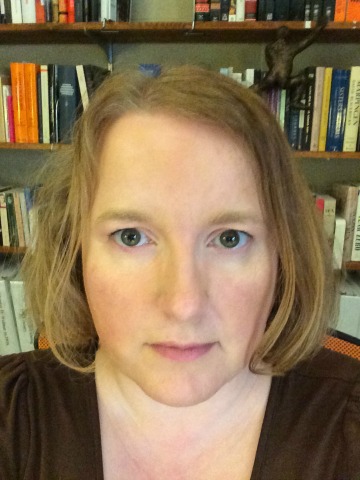
She has published in European History Quarterly and the forthcoming volume (November 2016) of Lessons and Legacies edited by Wendy Lower and Lauren Faulkner. She is also the co-editor and translator with Kevin Spicer of the forthcoming annotated diary of Erna Becker-Kohen, a German Jewish woman who survived the Holocaust in a “mixed” marriage in Germany.
Title:
Presenter, Women as Rescuers and Collaborators panel, “Belgian Nuns and their Rescue of Jewish Children”
Who:
Suzanne Vromen, Professor Emeritus, Sociology, Bard College
Bio:
Suzanne Vromen is Professor Emeritus of Sociology at Bard College where she taught for 22 years. She was living in Belgium when the Germans invaded the country in 1940. After a year under Nazi occupation, with her family she succeeded in escaping and finding refuge in what was then the Belgian Congo.
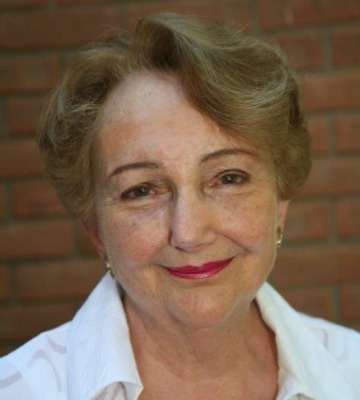
She received an M.S. in Urban Planning from Columbia University, M.A. and Ph.D. in Sociology from New York University. At Bard College, besides teaching in and chairing the Sociology department, she co-founded the Women’s Studies Program in 1979 and directed it for eight years. She has held visiting positions at Vassar College, at the University of Haifa and taught at the Buber Institute of the Free University of Brussels as the recipient of two Fulbright Senior Specialist grants. She has offered courses on the Holocaust for many years, given workshops for high school teachers under the auspices of Facing History and Ourselves, and lectured frequently at the Museum of Jewish Heritage in New York City. She is the author of Hidden Children of the Holocaust: Belgian Nuns and Their Daring Rescue of Young Jews from the Nazis (2008 Oxford University Press). Among her other publications are articles and book chapters on collective memory, nostalgia and commemoration, social theorists Georg Simmel and Maurice Halbwachs, the identities of Jewish-American women and Hannah Arendt’s Jewish identity. In a recent published essay (2013) she discussed the linkages between family and religion expressed by children hidden in convents during the Holocaust. Her analysis of selected aspects of the Jewish resistance in Belgium has recently appeared in an anthology entitled Jewish Resistance against the Nazis edited by Patrick Henry and published by Catholic University Press in 2014.
Title:
Respondent, Women as Rescuers and Collaborators panel
Who:
Robert P. Ericksen, Kurt Mayer Chair in Holocaust Studies (emeritus)
Bio:
Robert P. Ericksen is the author of Complicity in the Holocaust: Churches and Universities in Nazi Germany (Cambridge, 2012) and Theologians under Hitler (Yale, 1985), which appeared in German, Dutch, and Japanese translation and was turned into a documentary film of the same name (Vitalvisuals.com, 2005). He is co-editor with Susannah Heschel of Betrayal: German Churches and the Holocaust (Fortress, 1999) and has served on the Board of Editors of Kirchliche Zeitgeschichte since this journal was founded in 1988. He also is Chair of the Committee on Ethics, Religion and the Holocaust at the U.S. Holocaust Memorial Museum.
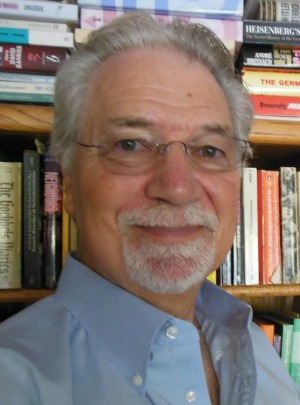
Title:
Musical Performance
Who:
Miya Higashiyama ’17, Pacific Lutheran University
Bio:
Miya Higashiyama (’17) is a senior Vocal Performance major, German minor from Sammamish, Washington. On the PLU stage she has sung lead opera roles from a variety of shows including “The Barber of Seville”, “Hansel and Gretel”, “Orpheus in the Underworld”, and “Alcina”.
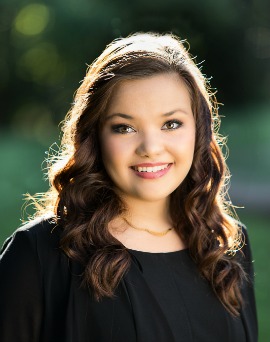
Last January she was one of four participants in the Joyce DiDonato Masterclasses at Carnegie Hall, live streamed all over the world on Medici.tv. As a member of the PLU Choirs, she has toured all over the country and in Europe. In addition to her musical studies with Chair of Vocal Studies, James Brown, Miya enjoys playing piano, hiking, and traveling.
Wednesday, October 19
Title:
Introduction and Respondent, Women as Survivors panel
Who:
David Simpson, Assistant Professor of Social Work, PLU
Bio:
David Simpson, Ph.D., LCSW (IL), is Assistant Professor of Social Work at Pacific Lutheran University. Dr. Simpson arrives at PLU in 2016 from the University of Illinois at Chicago and the Institute for Juvenile Research, Department of Psychiatry, where he was Assistant Professor of Clinical Psychiatry and Social Work.
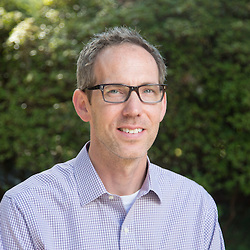
As the Clinic and Research Coordinator for the Pediatric Stress and Anxiety Disorders Clinic, using a cognitive behavioral strategies framework, he treated individuals across the life-span with anxiety disorders, including Obsessive Compulsive Disorder (OCD) and Post-traumatic Stress Disorder (PTSD) for more than 15 years. In addition to his clinical work, Dr. Simpson remains a Co-Primary Investigator of a risk and protective factors study designed to look at correlates associated with anxiety in youth. Furthermore, Dr. Simpson was the Program Evaluator for the Urban Youth Trauma Center (UYTC), a Treatment Services Adaptation Center within the National Child Traumatic Stress Network (NCTSN). UYTC aims to improve the lives of youth and families affected by community violence who are experiencing traumatic stress and co-occurring conditions, including substance abuse and disruptive behavior problems. Dr. Simpson was an Adjunct Professor at the Jane Addams College of Social Work at the University of Illinois at Chicago where he taught mental health practice and research classes to master’s level social work students in the mental health concentration.
Title:
Presenter, Women as Survivors panel, “Seeing Things Differently: Community and Theatre in Charlotte Delbo’s ‘Auschwitz and After’”
Who:
Patrick Henry, Cushing Eells Emeritus Professor of Philosophy and Literature, Whitman College
Bio:
Patrick Henry is Cushing Eells Emeritus Professor of Philosophy and Literature at Whitman College in Walla Walla, Washington, where he taught French and French literature from 1976-2002.

He has published books on Voltaire, Camus, Montaigne, and La Princesse de Clèves. More recently, in 2007, he published “We Only Know Men:” The Rescue of Jews in France during the Holocaust (The Catholic University of America Press) which has been translated and published in France as La Montagne des Justes (Éditions Privat, 2010). In 2014, he published his edited volume, Jewish Resistance Against the Nazis (The Catholic University of America Press). He has just completed a play entitled “Auschwitz and After,” based on Charlotte Delbo’s book of the same title. Its first performance reading took place in the Gesa Theater in Walla Walla, WA in January, 2016.
Title:
Presenter, Women as Survivors panel, “Seeing Things Differently: Community and Theatre in Charlotte Delbo’s ‘Auschwitz and After’”
Who:
Dee Simon, Baral Family Executive Director, Holocaust Center for Humanity, Seattle, Washington
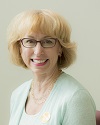
Bio:
Dee Simon, is the Baral Family Executive Director of the Holocaust Center for Humanity. A graduate of the University of Southern California’s business school, she has held positions with major corporations in the finance field and as a business consultant.
Dee has been working with the Holocaust Center for over 21 years. First as a volunteer, then a board member, followed by four terms as President of the Board. She joined the staff as Co‐Executive Director in 2006 becoming the Executive Director in 2012.
Dee serves on the board of the international Association of Holocaust Organizations.
Title:
Presenter, Reconsidering Anne Frank panel, “A Feminist Reading of Anne Frank’s Diary: Unexplored Perspectives”
Who:
F. K. Clementi, Associate Professor of Jewish Studies, and Peter and Bonnie McCausland Fellow of English Language and Literature at the University of South Carolina
Bio:
F. K. Clementi is Associate Professor of Jewish Studies, and Peter and Bonnie McCausland Fellow of English Language and Literature at the University of South Carolina, where she teaches graduate and undergraduate courses on the Holocaust and women’s cultural production.
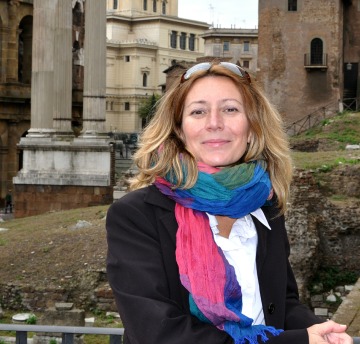
She is the author of Holocaust Mothers and Daughters: Family, History, and Trauma (Brandeis UP, 2013), and of several articles on the subject of genocide, the relation between patriarchy and violence, especially as it targets women and minorities. Her article about French philosopher Sarah Kofman “Nightbirds, Nightmares and the Mothers’ Smile: Art and Psychoanalysis in Sarah Kofman’s Life-Writing” won the national Florence Howe Award for Feminist Scholarship.
Title:
Presenter, Reconsidering Anne Frank panel, “The Anne Frank Project: Anne in the Classroom”
Who:
Lisa Marcus, Professor of English and Faculty Affiliate, Holocaust and Genocide Studies and Women’s and Gender Studies, PLU
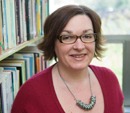
Bio:
Lisa Marcus holds a Ph.D. from Rutgers University and is Professor of English and a founding member of the Holocaust and Genocide Studies Program at Pacific Lutheran University. She is also a Faculty Affiliate in the Women’s and Gender Studies program. At PLU she teaches a range of courses from Women Writers and the Body Politic to Jewish American Literature and The Holocaust in the American Literary Imagination. Among her recent publications are: “‘The Holocaust Without Smoke’: Irena Klepfisz’s ‘Bashert’” and a companion poem “I Did Not Lose My Father at Auschwitz;” “Making Herself for a Person: Anzia Yezierska’s Bread Givers and Jewish-American Self-Construction;” and “Dolling Up History: Fictions of Jewish American Girlhood,” about Rebecca Rubin, the Jewish American Girl doll. On sabbatical in 2016-17, she is working on two projects: one, Finding Zlata Jampolski: Nostalgia Fictions of Jewishness in America, links her grandmother’s immigration story to Jewish American literary texts; the second is a study of the correspondence between her late mother, the literary critic Jane Marcus, and the renowned American poet Adrienne Rich, during the years 1978-82.
Title:
Presenter, Reconsidering Anne Frank panel
Who:
Lexi Jason ’17, Pacific Lutheran University
Bio:
I am a senior Acting/Directing BFA with a Holocaust and Genocide Studies minor. My interests include Holocaust memoirs and their subsequent criticism, Jewish studies, the transitions of Holocaust survivors, and theatre of the Holocaust. After graduation, I hope to continue my study of the Holocaust by attending graduate school in the field of Holocaust and Genocide Studies.
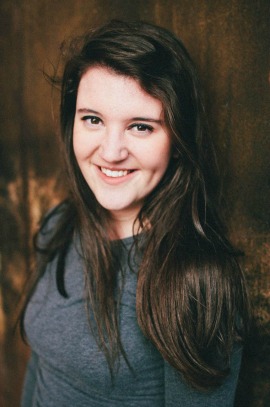
Title:
Presenter, Rebuilding Lost Polish/Jewish Connections in the School of Dialogue Program
Who:
Olga Kaczmarek, Director of International Relations at Forum for Dialogue
Bio:
Olga Kaczmarek, Ph.D. is the Director of International Relations at Forum for Dialogue. She holds a Ph.D. in cultural studies and has published a book on writing about alterity in the philosophy of Emmanuel Levinas and postmodern anthropology.
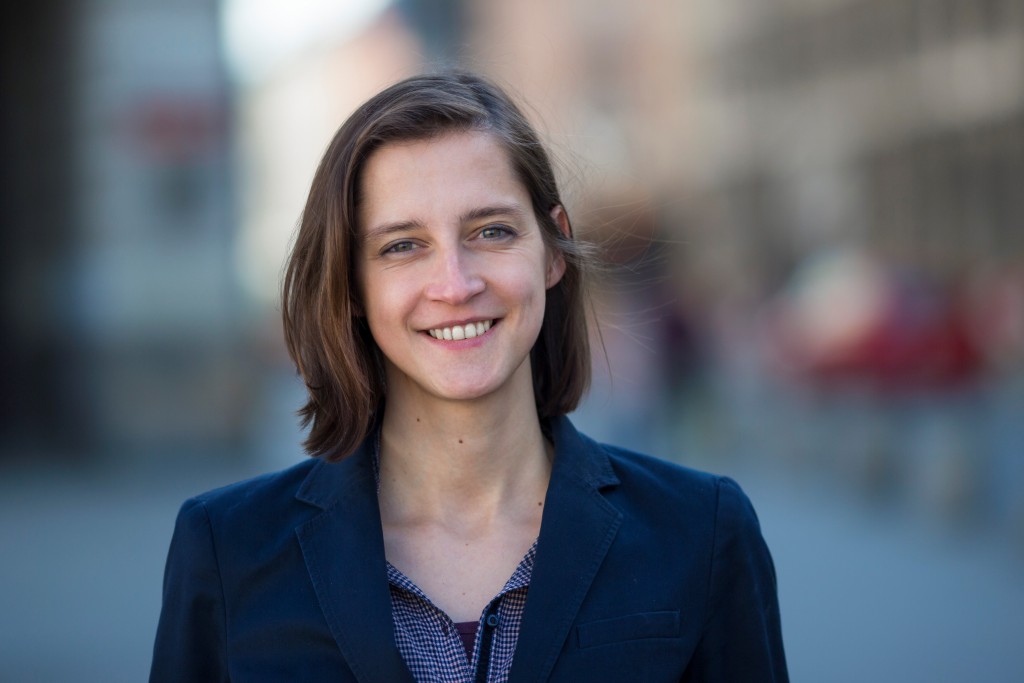
She is a part-time lecturer at the Institute of Polish Culture at the University of Warsaw. She was a Fulbright fellow at Penn State University. Before that, she wrote an M.A. thesis on blood libel in Europe and Poland. She previously co-operated with the Museum of the History of Polish Jews on The Polish Righteous program and worked as Forum for Dialogue’s educator.
Forum for Dialogue is the largest and oldest Polish non-governmental organization engaging in Polish/Jewish dialogue. Forum is dedicated to inspiring new connections between contemporary Poland and the Jewish people. Through education, study tours and working with public opinion leaders, we restore Jewish memory and create a space where non-Jewish Polish citizens and Jews can get to know each other.
Title:
Presenter, Rebuilding Lost Polish/Jewish Connections in the School of Dialogue Program
Who:
Ellie Lapp ’17, Pacific Lutheran University
Bio:
Ellie is a senior from Kalispell, Montana who is double-majoring in Anthropology and Global Studies and minoring in Hispanic Studies. She has studied away four times while at PLU, spending one J-term in Northern Ireland, another J-term on the Makah Native American Reservation, a semester in Oaxaca Mexico, and a summer in Norway as a PLU Peace Scholar. This summer she returned to Oaxaca where she interned with a micro-finance organization and conducted a research project. Ellie is this year’s Student Body President, and is also a committed volunteer with PLU’s Center for Gender Equity.
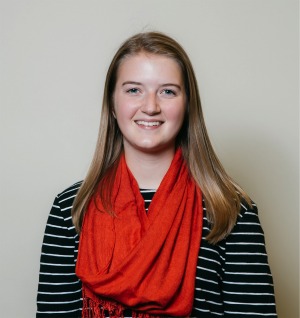
Title:
Presenter, Rebuilding Lost Polish/Jewish Connections in the School of Dialogue Program
Who:
Taylor Bozich ’17, Pacific Lutheran University
Bio:
Taylor Bozich is a senior at Pacific Lutheran University, majoring in Biology and Global Studies with a concentration in Development and Social Justice. By the time she graduates, she will have studied away four times.
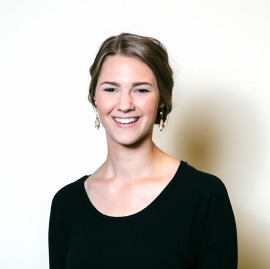
In 2015, she studied peace-building and dialogue in Norway as a PLU Peace Scholar, and this past summer she interned at a non-profit humanitarian and aid organization in Washington, D.C. with the help of the Joe Smith Peace-Building Award. She currently serves as ASPLU Vice President and is the Advocacy Lead for Partners in Health Engage, a club she started with three other students this year to advocate for global health equity. After Taylor graduates, she hopes to go to medical school to pursue women’s health.
Title:
Presenter, Rebuilding Lost Polish/Jewish Connections in the School of Dialogue Program
Who:
Ariel Wood, Senior, Pacific Lutheran University
Bio:
Ariel Wood is a current senior studying French, Global Studies, and Economics at Pacific Lutheran University. She spent her summer in Norway as one of the 2015-16 Peace Scholars. In Norway she studied Scandinavian government and conducted individualized research with the Roma population of Oslo.
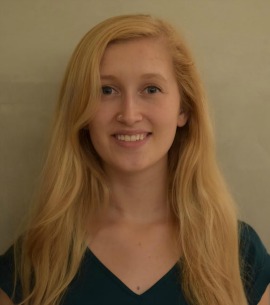
Title:
Presenter, Rebuilding Lost Polish/Jewish Connections in the School of Dialogue Program
Who:
Theo Hofrenning, Senior, Pacific Lutheran University
Bio:
Theo Hofrenning is a senior working on Political Science and Hispanic Studies majors. He has been involved around campus in the Associated Students of PLU as an at-large senator, Diversity Advocate in the Diversity Center, and four year member of PLUtonic. He recently had the honor of studying Scandinavian politics and peace building strategies at the University of Oslo as a Peace Scholar.
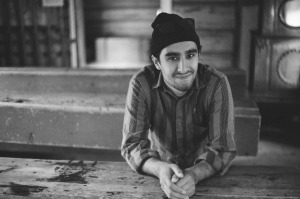
Title:
Respondent, Rebuilding Lost Polish/Jewish Connections in the School of Dialogue Program
Who:
Ann Kelleher, Professor Emeritus, PLU
Bio:
As and Emeritus PLU Professor Dr. Kelleher has continued her studies of peacebuilding with research/writing on dialogue in Macedonia and Northern Ireland and a case study of a community development peacebuilding group in Derry/Londonderry Northern Ireland. Currently she is teaching at PLU as a contingent faculty member.
